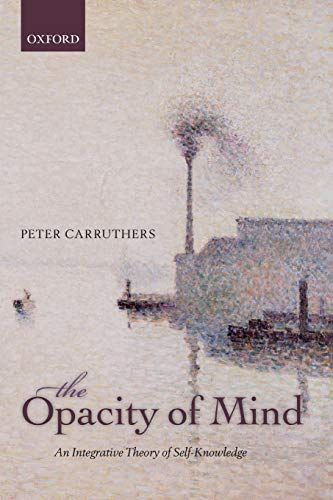
The Opacity of Mind An Integrative Theory of Self-Knowledge
It is widely believed that people have privileged and authoritative access to their own thoughts. The Opacity of Mind challenges the consensus view and subjects the theories in question to critical scrutiny, while showing that they are not protected against the findings of cognitive science by belonging to a separate 'explanatory space'. Access to our own thoughts is almost always interpretive, grounded in perceptual awareness of our own circumstances andbehavior, together with our own sensory imagery (including inner speech). Peter Carruthers proposes and defends the Interpretive Sensory-Access (ISA) theory of self-knowledge. This is supported through examination of many different types of evidence from across cognitive science, integrating a diverse set offindings into a single well-articulated theory. One outcome is that there are hardly any kinds of conscious thought. Another is that there is no such thing as conscious agency.